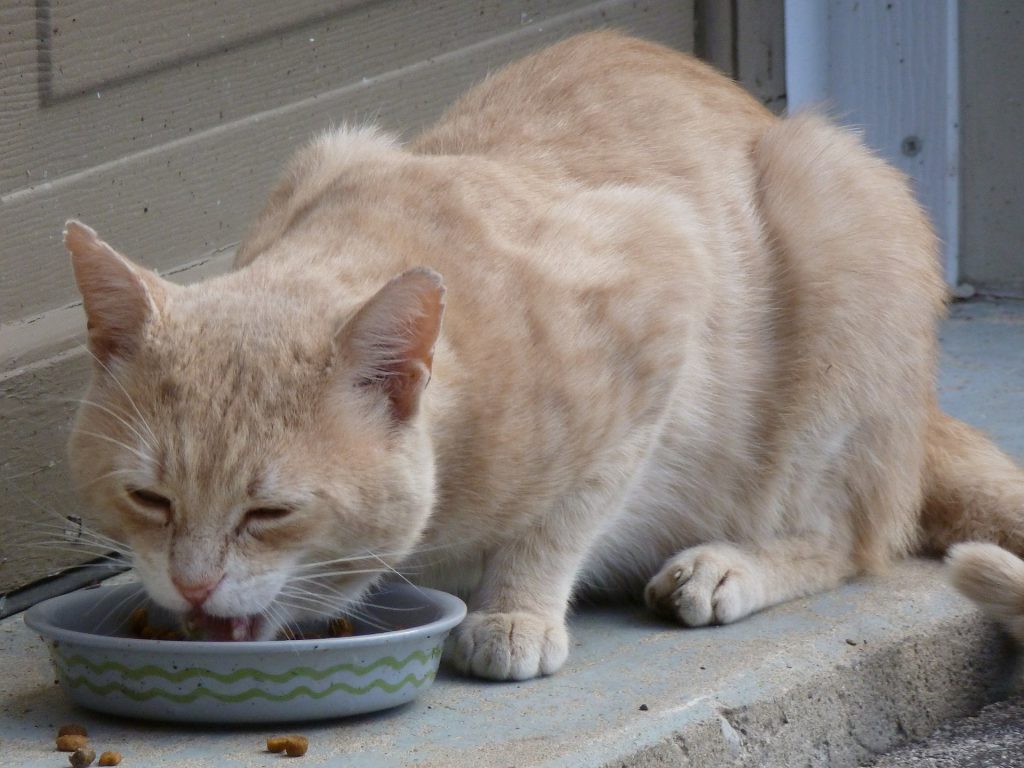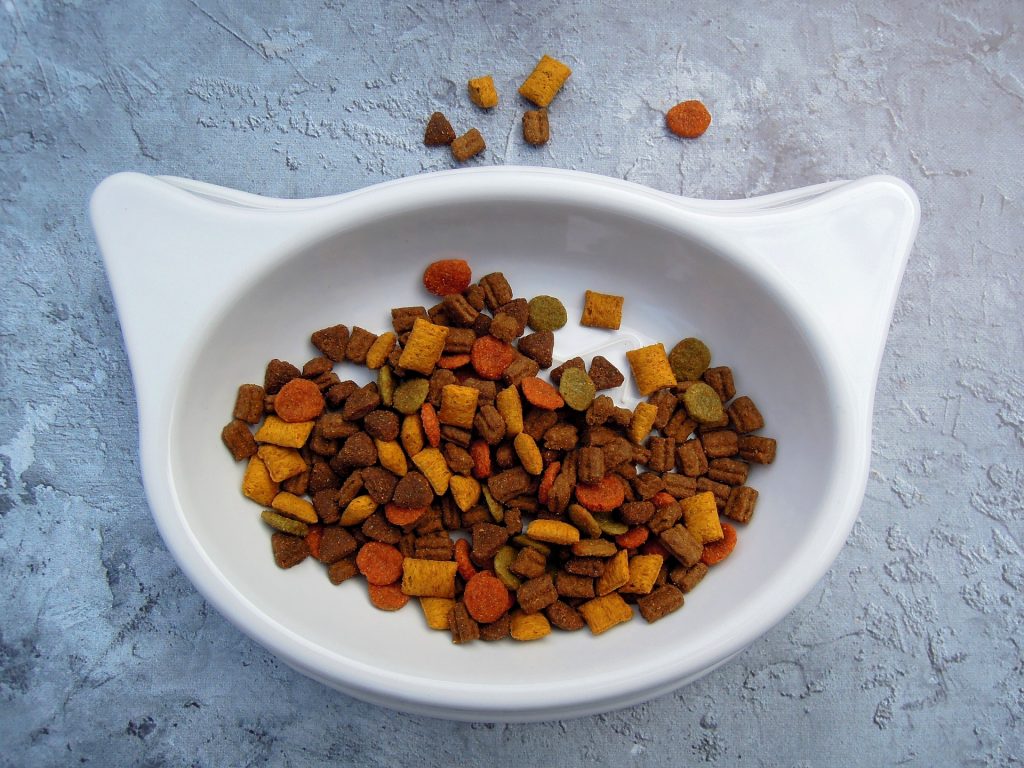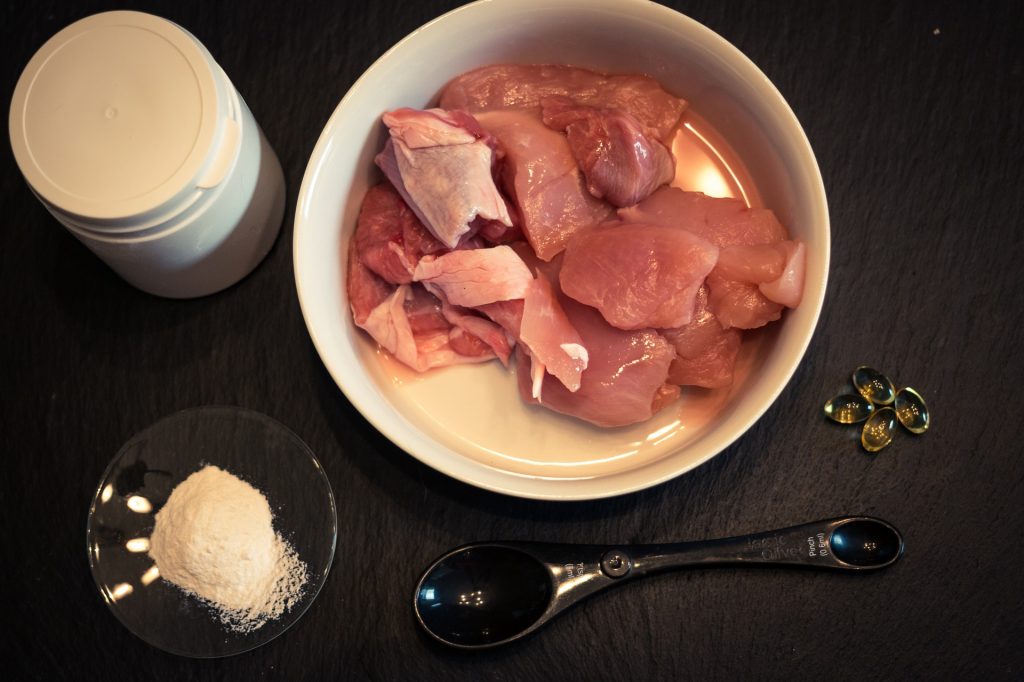If you consult the internet about the intricacies of cat food, you will come to know that the there is a vast variety of cat food available that you can buy for your pet cat. Once you are done with one article, you may read another one telling you something completely opposite or at least partially contradictory to what you had read earlier. In those instances, you may be thinking what actually does constitute a balanced diet for cats?
We can offer you two solutions for this conundrum. First, you can just go to a vet you trust and ask for his or her opinion on the matter. It would be wise because every cat is different and the vet can actually offer valuable advice based on the activities and habits of your cat as well as take into account your budget. The second thing you can do is continue researching. Eventually, you will have enough sense and knowledge to understand the feline diet. This will help you in making a decision for your cat’s safety.

Your pet cat needs a balanced diet to stay healthy and with a properly regulated metabolism. There are at least 50 crucial nutrients that a pet cat requires in its food, most of which we will go over later in this piece. In the light of the recent pets at home recall, let’s take a look at the basics of cat food.
Difference between Cat and Human Anatomy
Cats are not like humans, we can eat a lot of things cats cannot and vice versa. So if you are big on meal plans either for muscle gain, fat control or just in general, you would have to be careful not to confuse your essential nutrients and food types with that of your pet cat.
One such aspect of cat’s diet are carbohydrates, this particular nutrient needs to be low in proportion of other nutrients in cats’ diet compared to a human’s diet. We need a lot of wholesome carbohydrates, but the same is not true for cats.
Therefore, you should know that cats are not meant to digest lots of grains because they are all carbs.

Cat Feeding Myths
There are a lot of rumours and myths circling around about what kind of food is good for cats. One such myth is that large sized dry kibbles are good for a cat’s teeth, hence the so-called name “dental diet.” However, this cannot be further from the truth. Cats don’t like chewing for long periods of time, which results in hem not cleaning their teeth via excessive chewing. Instead, they tend to swallow large pieces of food which results in further complications with stomach and digestion.
Food Ingredients Needed in any Balanced Diet for Cats
Cats need protein, and if that meat is organically produced, it is all the more welcome for their health. Steer clear of meat-lite substances that claim to be protein rich. You don’t have to take such “risks” because simple proteins are good enough.
Try your best to avoid any genetically modified food which has been quite controversial. Considering even if we don’t know for sure whether GMOS food has long-term side-effects, why risk it?
Many of the canned cat food products consist of fish, however, you have to be careful because the mineral and toxin contingent – especially phosphorous – in those foods might be more than you would like for yourself or your cat. This abundance of metals may give rise to kidney and excretion problems in a cat.

Also, if your cat has a big coat, you should ensure that its food has a lot of fatty acids and fibres. These nutrients help keep the skin moist and keep the hairball in control respectively. If your cat spends much of its time inside the house, then make sure its calorie intake is not more than required because then obesity will strike. Indoor cats need fewer calories per day than outdoor cats and the opposite is true, of course, for the latter. It is your responsibility to find a balanced diet for cats in your care.
For more information, visit, SunnydayPets.co.uk.